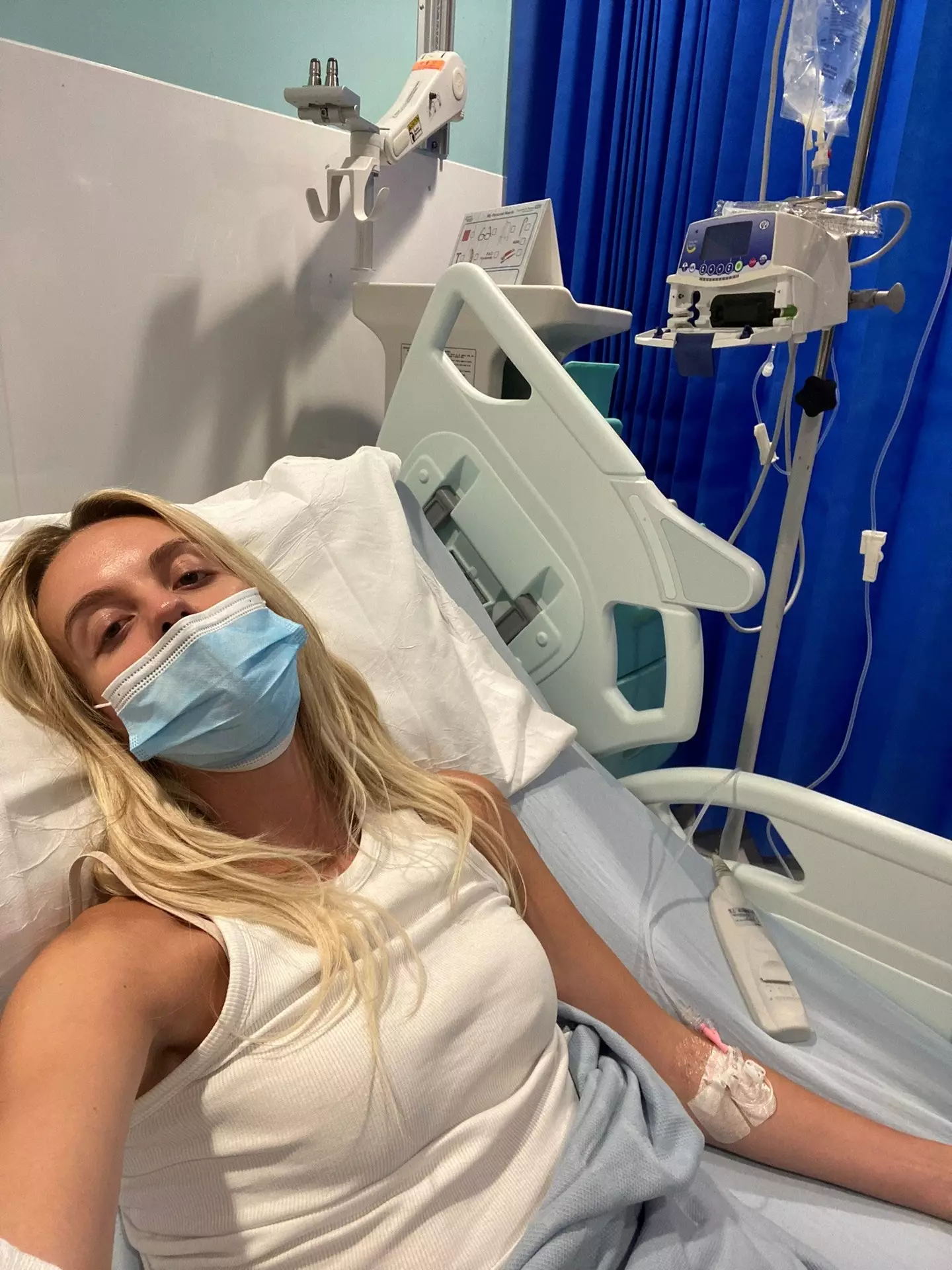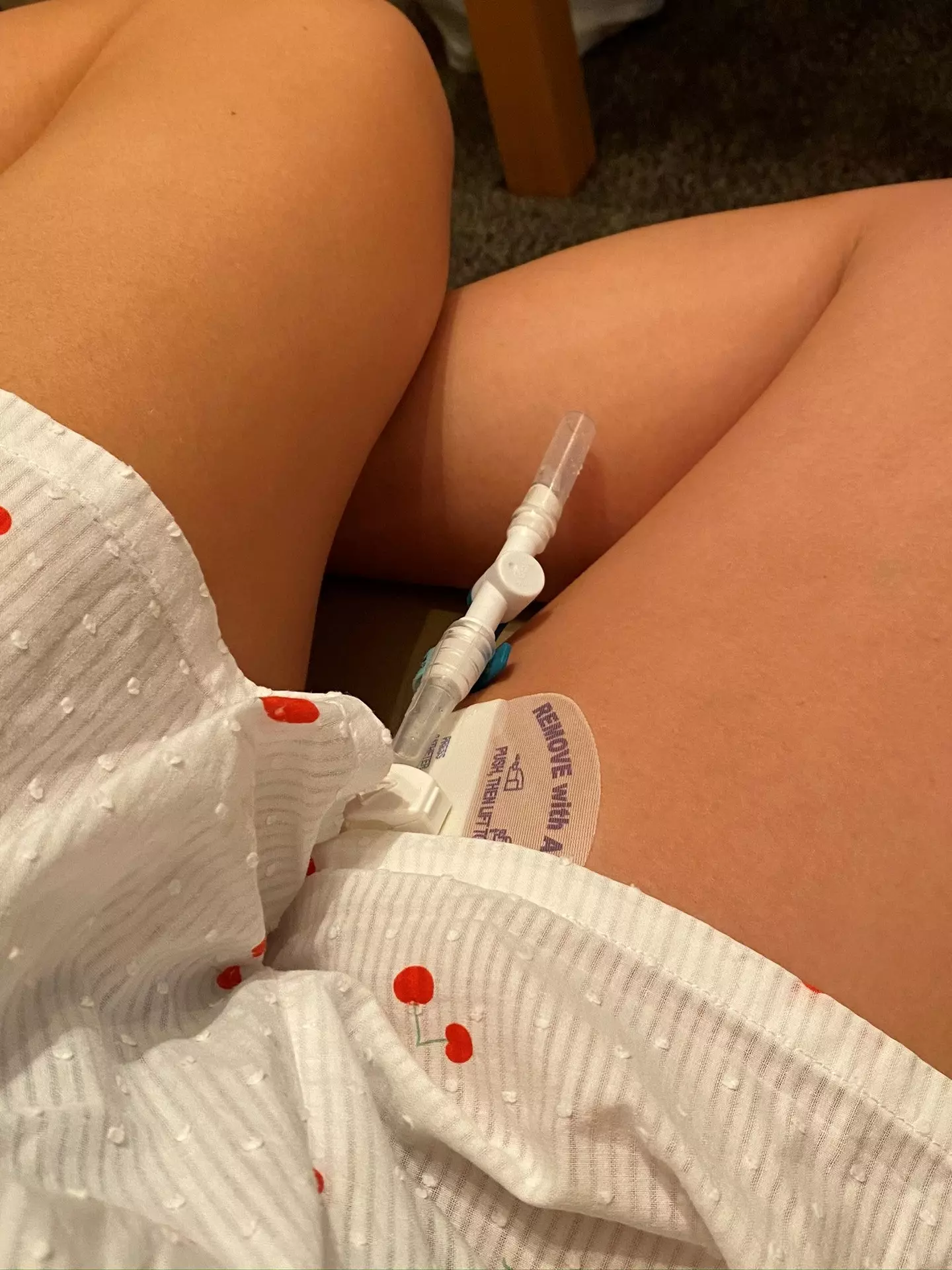
A woman was unable to wee for more than a year despite how much fluid she drank.
In October 2020, Elle Adams woke up unable to urinate even though she felt like she needed to.
Adams, a content creator from Bow, east London, went to A&E at St Thomas’ Hospital, London, where she explained her symptoms. While women’s bladders are usually able to hold up to 500ml – and men’s can hold up to 700ml - doctors discovered a litre of urine in Adams’ bladder.

Advert
Doctors fitted her with an emergency catheter - a tube that’s passed into the bladder to drain urine.
A week later Adams visited the urology centre where she was taught how to self-catheter before she was sent back home.
She was unable to wee normally and did not know the cause of her mysterious condition. It would take 14 months until she was diagnosed with an unusual syndrome that shed some light on the situation but also meant her life would change forever.
"I was extremely healthy,” she recalls. “I had no other problems.
"I woke up one day and I wasn't able to wee. I was very concerned.
"I was at breaking point - my life had completely changed.
"I wasn't able to complete a simple task like go to the toilet."

Eight months after visiting A&E, Adams went to a urology centre and was told that she was likely suffering from Fowler's syndrome, a cause of urinary retention in which sufferers are unable to empty the bladder normally. It can be debilitating and the exact cause is not yet known.
At Guy’s Hospital, London, Adams underwent a urodynamics test - a procedure that looks at how well parts of the lower urinary tract work to store and release urine.
"I was told how I was likely suffering from Fowler's. I was talked through the treatment options which were minimal - we did try medication but it just made no difference,” Elle said.

"[The] only option for me was to undergo sacral nerve stimulation which acts as a pacemaker for the bladder.”
Sacral nerve stimulation delivers gentle electrical impulses through a thin wire probe that is placed near the sacral nerve.
It works in a similar way to a pacemaker but instead of stimulating someone's heartbeat it stimulates someone's bowel muscles, so they work normally.
She had an operation in January 2023 to have it done.
"It is not life-changing, but it can help. I catheterise a lot less, around 50 percent less.
"It has made my life easier, after two years of hell it is all I can ask for. I am doing well, I am on the more well side of Fowler's.
"I am grateful for the difference, I am feeling better than I was.
"I couldn't have imagined how I was going on before, it was so draining, and it took up my life it was becoming hard to imagine that would have been the case forever.
"Now I can wee on my own, I have cut down my self-catheterisation a lot. It is still difficult, but it is much better than it was."
Topics: Health
